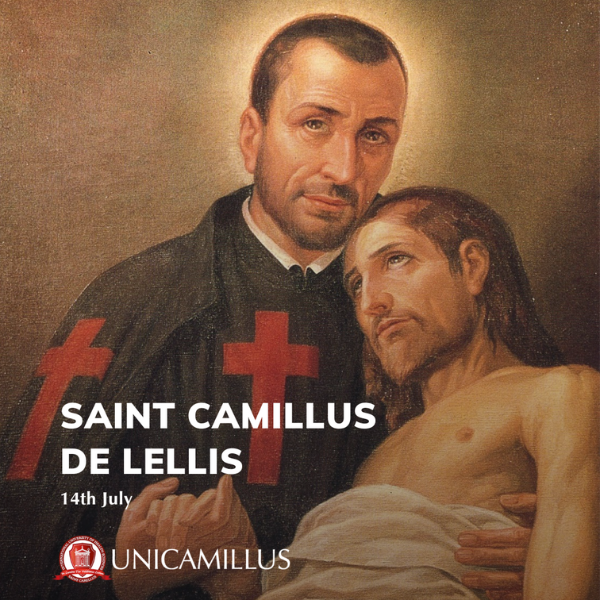Today marks the commemoration of Saint Camillus De Lellis, who passed away in Rome on 14th July 1614, after dedicating a significant part of his life to the care of the sick. A source of inspiration for UniCamillus, the words used to describe his works being fundamental in understanding how central this figure has been in the history of medicine.
He didn’t make great discoveries but he was the creator of the Rules for Properly Serving the Sick (Regole per ben Servire gli Infermi): a set of guidelines for those dedicated to caring for the sick. It is no coincidence that he is considered a precursor of modern nursing. Especially in the latter part of his life, he cultivated and witnessed how human mercy and charity – principles that transcend any form of religiosity – towards those in precarious health conditions are essential elements on which to base every medical treatment. “More heart in those hands, brothers, more heart!“, he preached to those who joined him in assisting the sick. And it is precisely in this sense that his actions are recognized as worthy of sanctity, beyond strictly religious aspects. He professed love for care. In our University, which is non-denominational and multicultural in its vocation, we do not venerate the figure of the Christian saint in the strict sense, but rather transmit his teachings on the proper way to care for people.
Camillo De Lellis was born in 1550 in Bucchianico, Abruzzo, near the Tiburtina road, where UniCamillus is now located. Born into an aristocratic family, he led a dissolute life until the age of 25 and served as a mercenary soldier for Emperor Charles the Fifth. A foot injury brought him to Rome for the first time in 1571 and then again in 1575, at the San Giacomo degli Incurabili Hospital.
Quarrelsome and not inclined to work or study, after squandering his wealth, he was forced by illness to spend several years in close contact with other patients and, above all, with the “medical staff” of the time. The concept of care in the late 1500s hospitals was far more brutal than one can imagine today, especially towards the poorest. The experience he witnessed and lived at San Giacomo changed something within him, leading to his vocation for caring for the hospitalised. In 1582, he founded the “Company of Ministers of the Sick.” He came into contact with Filippo Neri (also a future Saint), and under his spiritual guidance, he was ordained as a priest in 1583. The Company soon attracted the attention of many, in Rome and beyond, for the acts of charity in which they became protagonists (particularly during a period of famine in 1590). The news reached the attention of Pope Gregory XIV, who decided to elevate the Company to a religious order. On 8th December 1591, Camillo and his followers, who had joined him in the meantime, pronounced solemn vows, and thus, the Order of Clerics Regular, Ministers to the Sick, was born, still active today and known as the Camillians.
Among the rules propagated by Saint Camillus, one, in particular, is of especial importance to us. In addition to the practice of charity and care for the sick, those who joined the Order were required to pursue adequate culture and scientific-experimental preparation. This is the legacy that we have embraced at UniCamillus to educate the future generations of doctors, nurses and healthcare professionals.

